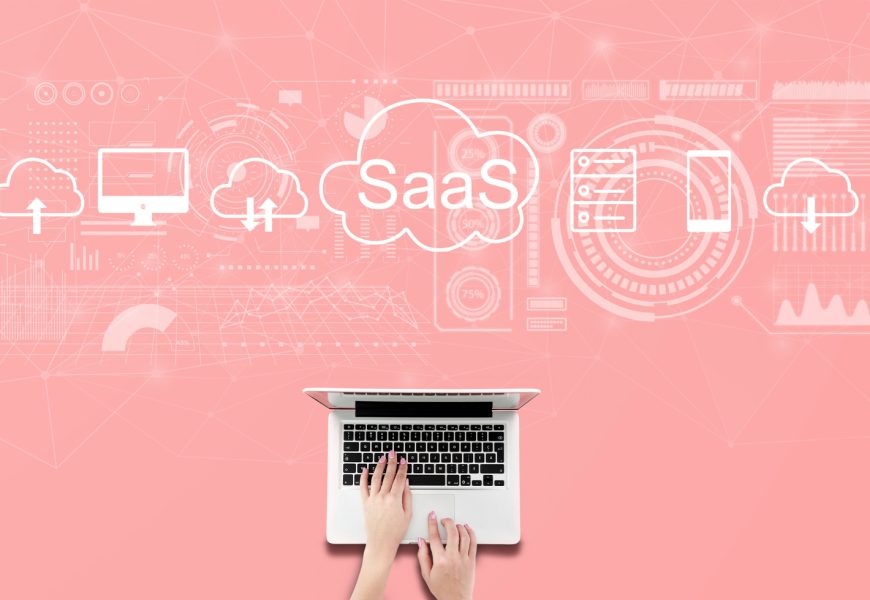As software-as-a-service (SaaS) continues to reshape industries worldwide, effective marketing strategies are crucial for SaaS companies to stand out in an increasingly crowded marketplace. In 2024, the SaaS marketing landscape is seeing some exciting trends emerge, especially those harnessing advanced AI capabilities and personalization to better meet customer needs. Let’s explore the key trends shaping the future of SaaS marketing.
✅Trend #1: Hyper-Personalization Driven by AI
In 2024, hyper-personalization is moving beyond simply addressing users by name; AI-driven tools are enabling companies to create dynamic, personalized experiences at every touchpoint. By analyzing large datasets on user behavior, preferences, and past interactions, AI can deliver tailored content, offers, and recommendations in real time. This trend is especially crucial in SaaS, where customers expect seamless interactions and relevant content.
➭Benefits of Hyper-Personalization
- Enhanced Customer Retention: Personalized experiences build brand loyalty.
- Improved Conversion Rates: Targeted messaging leads to higher conversion rates.
- Better Product Adoption: Personalized onboarding can help new users see value quickly.
✅Trend #2: The Rise of Product-Led Growth (PLG)
Product-led growth (PLG) has emerged as a vital strategy in SaaS marketing. By letting the product itself serve as the primary marketing vehicle, companies are seeing improved user acquisition and retention. In 2024, PLG is becoming even more refined with AI-powered insights, enabling companies to identify where users may need extra guidance or to prompt upgrades to paid features at just the right moments.
➭AI’s Role in Enhancing PLG
AI tools can track and analyze in-app behaviors, helping to anticipate users’ needs. By understanding patterns in data, SaaS companies can improve product experiences, leading to organic user acquisition.
✅Trend #3: Voice and Conversational Marketing
Voice interfaces and conversational AI are becoming integral to the SaaS user experience. Conversational marketing tools, such as AI-powered chatbots, can engage users more effectively than traditional text channels. As customers seek faster and more convenient ways to interact with brands, integrating voice and chat options with intelligent automation is essential.
✅Why AI Is the Future of SaaS Marketing Services
➭The AI Advantage in SaaS Marketing
Artificial Intelligence is rapidly transforming the marketing landscape across industries, but SaaS marketing services are uniquely positioned to leverage AI’s strengths. AI offers powerful tools for SaaS marketers to enhance targeting, optimize campaigns, and streamline workflows. Here are the top reasons why AI is set to be the future of SaaS marketing services.
➭Predictive Analytics: Anticipating User Needs
AI-driven predictive analytics allows SaaS companies to anticipate customer needs by analyzing historical data, user behavior, and market trends. Predictive models can suggest what types of products, features, or offers might resonate with a particular customer segment, allowing marketers to focus on high-impact activities.
➭Use Case: AI-Driven Segmentation in SaaS
Imagine a SaaS company offering a productivity tool. AI-powered segmentation can help the company identify which users prefer task management versus communication features, allowing for personalized engagement and promotional efforts.
➭Enhancing Lead Scoring with AI
In SaaS marketing, lead scoring can be complex due to varying buyer journeys. AI enhances lead scoring by continuously analyzing a range of factors, such as engagement levels, purchase intent, and account-level behaviors. This dynamic scoring model enables marketers to focus on leads with the highest potential to convert.
➭Automation for Efficiency
Marketing automation tools powered by AI save time and reduce manual effort. In SaaS, where resources may be lean, AI-based automation can handle repetitive tasks like email campaigns, lead nurturing, and content recommendations. Not only does this increase efficiency, but it also ensures that customers receive timely, relevant interactions.
➭Personalized Customer Support with AI Chatbots
AI-powered chatbots have become standard for SaaS customer support. Chatbots can provide instant responses, solve basic issues, and escalate complex queries to human agents. This real-time assistance improves customer satisfaction and streamlines support processes, essential in the competitive SaaS industry.
✅AI in SaaS Marketing: From Data Collection to Decision-Making
➭The Role of AI in Marketing Decision-Making
AI enables SaaS marketers to gather, process, and analyze vast amounts of data, transforming raw information into actionable insights. This section explores the role of AI in various stages of the SaaS marketing funnel.
➭Data Collection: Gathering Valuable Customer Insights
AI-driven data collection tools automatically track user interactions, social media activity, and other data sources. This data provides insights into customer preferences and behavior patterns, which inform better marketing decisions. For SaaS companies, this means a more complete understanding of the customer journey, enabling precise targeting and improved engagement.
➭Data Analysis: Turning Raw Data into Insights
Once data is collected, AI algorithms analyze it for meaningful patterns. Predictive analytics, as mentioned, is instrumental here, but other techniques like machine learning help uncover hidden trends in customer behavior that traditional analysis might miss. SaaS companies can then tailor content, optimize campaigns, and make data-backed product adjustments.
➭Advanced Data Analysis Tools in SaaS Marketing
Tools like Google Analytics, combined with AI-driven solutions, allow marketers to track campaign performance at a granular level. For instance, AI can predict when customers are most likely to upgrade to a premium service, providing SaaS marketers with optimal times for upselling.
➭Automated Decision-Making: Real-Time Adjustments
AI enables real-time decision-making, which is a game-changer for SaaS marketing. AI algorithms can adjust campaigns instantly based on live performance data, ensuring that budgets are allocated to high-performing channels and messaging is adjusted for better engagement.
Conclusion
The integration of AI in SaaS marketing services—from trend prediction and lead scoring to decision-making—illustrates the transformative potential of these technologies. As we look toward 2024, these trends and AI advancements will not only shape how SaaS companies market themselves but will redefine what customers come to expect from SaaS interactions. Embracing these innovations will be key for companies aiming to lead in an increasingly digital, data-driven world.









